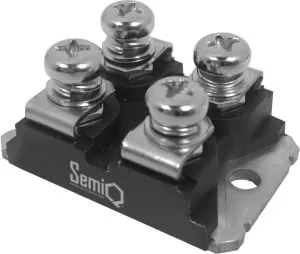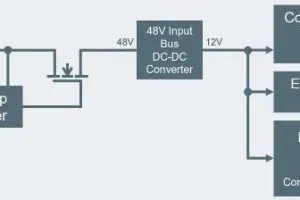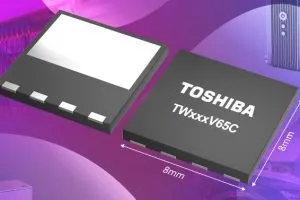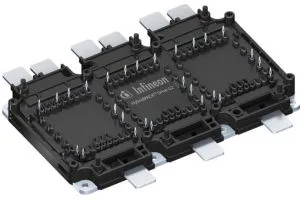
There are four devices:
- GCMS008C120S1-E1 8.4mΩ with Schottky
- GCMX008C120S1-E1 8.4mΩ
- GCMS016C120S1-E1 16.5mΩ with Schottky
- GCMX016C120S1-E1 16.5mΩ
The resistance figures here are the channel on-resistance.
In addition, two more are avalanche tested to 330mJ:
- GCMS040C120S1-E1 39mΩ with Schottky
- GCMX040C120S1-E1 39mΩ
The last one, according to the company, can switch as fast as 67ns. “The fastest switching device has a turn-on delay time of 13ns with a rise time of 7ns. Its turn-off delay time is 18ns with a fall time of 29ns,” it said. Total switching losses here can be 468µJ and a body diode reverse recovery charge of 172nC.
The Schottky-free 8m.4Ω version switches in 188ns with ~5mJ switching loss and 776nC body diode reverse recovery – which increases to 1.2μC in the version with a Schottky.
8.4mΩ devices offer typical drain leakage of 8μA (25°C 0Vg 1.2kVd) rising to 310μA at 175°C. Gate leakage is typically 10nA at 18V.
Operation is over -55 to 175°C and recommended gate drive is -4.5 and +18V (-8 to +22V max).
Packaging is 38 x 25mm SOT-227 with an isolated back for heatsink mounting rated for 4kVac isolation.
Mosfet junction-to-case thermal resistance is 0.23°C/W for 8.4mΩ devices regardless of any Schottly, and any Schottky fitted also has 0.23°C/W thermal resistance.
As well as solar inverters, “SemiQ is targeting the modules at energy storage systems, battery charging and server power supplies”, it said. “All devices have been screened with wafer-level gate-oxide burn-in tests and tested beyond 1400 V.”
Links to all six devices can be found on this SemiQ web page
Last week the same company announced a 20mΩ 263W three-phase SiC mosfet bridge module.
 Electronics Weekly
Electronics Weekly


